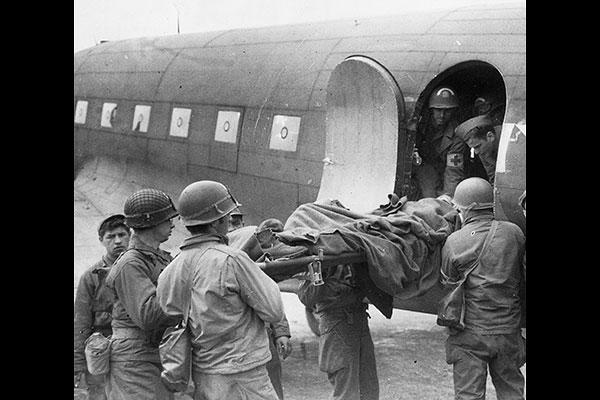Over 50 years have passed, and still no one knows why or how the C-47 medical evacuation plane became a target over German territory. What is known is that when flight nurse 2nd Lt. Reba Whittle scrambled out of the downed plane's burning shell, she became the only American woman POW in Europe during World War II.
On Sept. 27, 1944, Whittle and her fellow crew members from the 813th Medical Air Evacuation Squadron in England had been en route to France to pick up casualties. When their plane was shot down over Aachen, the survivors immediately were captured by German soldiers and taken on a forced march to prison camp. Along the way, they were examined at a German hospital, where a doctor asked Whittle questions about her occupation. In her diary — now in the possession of her husband, Stanley Tobiason, and researched by Lt. Col. Mark Clark, a military historian — Whittle wrote that the German doctor "at last shook his head and said, 'Too bad having a woman, as you are the first and no one knows exactly what to do.' "
Not knowing "exactly what to do" about Reba Whittle continued even after her release from Stalag 9C, where she had been allowed to nurse other captives. The U.S. government did not officially acknowledge her status as POW. Her widower Tobiason told a newspaper that "maybe it was because she was the only one." At the time of Whittle's capture, she and Tobiason were engaged. When he learned of the C-47's disappearance, Tobiason talked his general into allowing him to use an aircraft, gathered a volunteer crew, and flew his own search-and-rescue mission for his fiancee, without success.
Once married, the couple again faced failure in the struggle to have the bureaucracy grant POW status to Whittle. However, Tobiason says his wife was never bitter over her anonymity. She had been ordered by the Army not to talk about her experiences -- a common wartime regulation to protect military personnel still held by the enemy. She never did talk about those experiences, even to her family. Whittle was awarded the Air Medal and the Purple Heart in 1945, and in 1992, she was posthumously recognized as a POW. When that acknowledgment finally came, her husband said, "She would have been very delighted."















